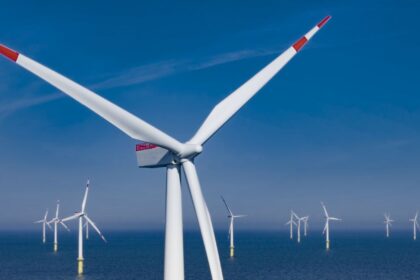
The new law on offshore wind energy that Romania’s President Klaus Iohannis has promulgated marks a significant advancement for renewable energy initiatives in Romania. This legislation paves the way for the development of offshore wind farms, aiming to boost the country’s energy independence and environmental sustainability.
The law establishes a clear framework for implementing electricity generation projects using offshore wind resources. This includes the establishment of offshore perimeters that can be offered for concession, which are areas designated for the exploration, construction, and operation of wind power plants. The Ministry of Energy plays a pivotal role in conducting expert studies to identify these perimeters and ensuring that the selection process is based on non-discriminatory principles, fair competition, and environmental sustainability.
Key responsibilities of Romania’s Ministry of Energy under this new law include:
- Conducting expert studies to determine viable areas for offshore wind energy projects.
- Establishing the technical specifications and environmental considerations for these areas.
- Managing the competitive tendering process for potential concessionaires.
- Drafting and managing concession contracts, including stipulating the rights and obligations of all parties involved.
- Overseeing compliance with these contracts and ensuring that concessionaires adhere to the specified environmental and technical standards.
The law also emphasizes the importance of using the best available techniques to prevent and control pollution, reflecting Romania’s commitment to sustainable development. This move not only fosters the growth of green energy but also opens up a myriad of business opportunities for both local and foreign investors interested in the renewable energy sector.
Moreover, within three months of its entry into force, the Ministry of Energy is tasked with initiating the procedures to prepare an expert study for the concession process. This demonstrates the government’s urgency and commitment to implementing this law effectively and expeditiously.
This legislation could significantly transform Romania’s energy landscape, making it an attractive destination for renewable energy investments and collaborations, enhancing the country’s energy security, and contributing positively to global environmental goals.




